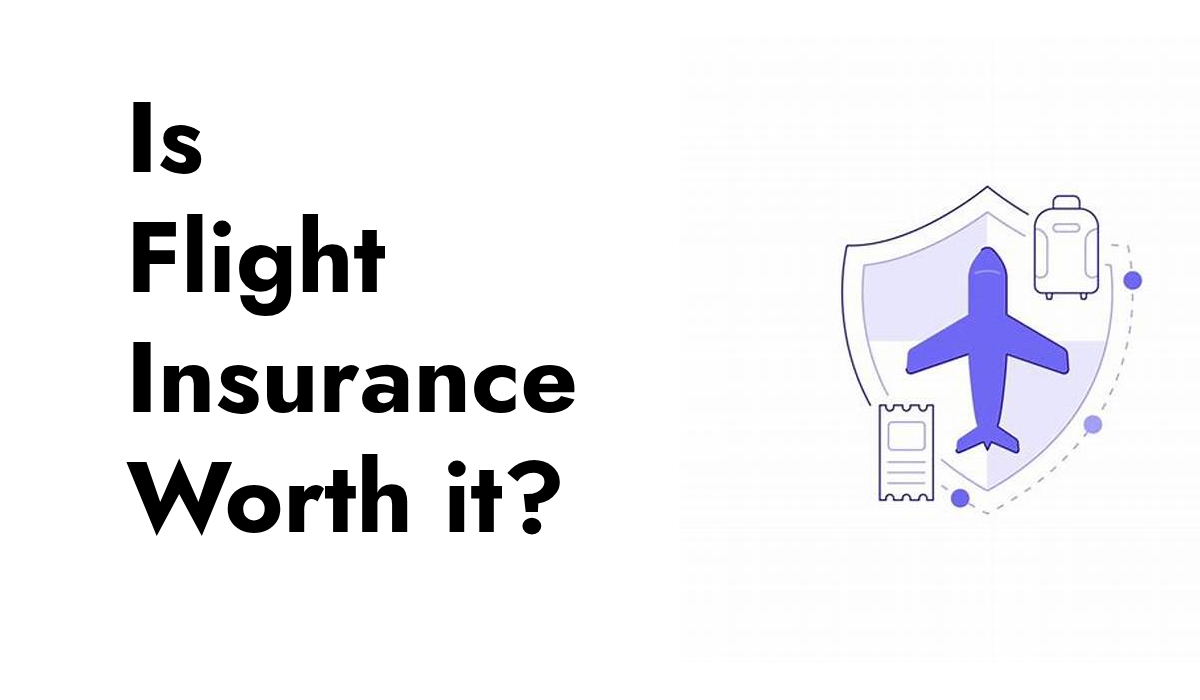Flight insurance may be helpful if you wish to reclaim your nonrefundable airfare if you are unable to fly and do not have additional travel insurance.
Trips are more than just an opportunity to unwind and explore the world. They’re also an investment. But there is a method to protect a portion of your investment: flight insurance.

- Certified pre-approval Process
- Online Application Available 24/7
4.3
editorial team. We score based on factors
that are helpful for consumers, such as
how it affects credit scores, the rates and
fees charged, the customer experience,
and responsible lending practices.
What is Flight Insurance?
Flight insurance is typically a contract between you and an airline, travel provider, or travel insurance firm that outlines how and under what conditions you will be reimbursed for the cost of nonrefundable plane tickets if your trip is delayed.
This insurance is coverage that you purchase from an airline or travel provider when you book a trip. It returns your airfare if you are unable to fly due to an emergency, such as illness or accident. These basic insurance often give no additional benefits. However, there are additional forms of flight insurance coverage you may find when arranging an aviation trip.
Here are the several methods that this type of insurance is sold.
- A policy purchased from an airline or travel provider that reimburses you for nonrefundable plane tickets if your trip is canceled.
- A conventional travel insurance policy with comprehensive benefits purchased through a partnership between your airline and a travel insurance firm, or through a travel provider and a travel insurance company.
- A travel insurance policy that includes coverage for air travel difficulties like flight and baggage delays and missed connections.
When you buy an airline ticket, flight insurance is normally available as an add-on from the airline or from third-party providers such as Expedia or Travelocity. Smaller airlines may offer insurance that only compensates for plane tickets when you arrange a trip. Many major airlines provide comprehensive travel insurance policies that cover cancellations, medical bills, and more.
You can also get insurance from travel insurance firms as part of a full travel insurance package. Some travel insurance firms provide standalone insurance plans. These often exclude cancelation coverage, which reimburses airfare, in favor of rewards for inconveniences such as tarmac and aircraft delays, as well as travel medical expenditure insurance.
What does flight insurance cover?
Standard flight insurance normally reimburses you for the nonrefundable portion of your airfare if unforeseen occurrences covered by your policy disrupt your flight.
Some basic flight insurance policies may only reimburse your airfare if you or a family member is ill or wounded in an accident that stops you from flying. More generous flight insurance options offer greater flexibility.
Some common issues covered by flight insurance may include:
- A terrorist event occurs near the city to which you are headed.
- An unforeseen injury or illness prior to travel.
- A mid-flight diversion that causes you to land at another airport.
- Death in your family or among your travel companions.
- Flight cancellations due by inclement weather, such as storms and blizzards.
- Unexpected flight delays can result in missed connections, such as equipment breakdown.
Is Flight Insurance Worth It?
Flight insurance, which is available when you buy aircraft tickets, is not always worth the money. If you have made numerous nonrefundable deposits for your trip, such as hotel stays, excursions, and tours, purchasing a comprehensive travel insurance coverage to cover your entire trip is probably a better alternative. A comprehensive policy provides more robust coverage, particularly for trip cancellation and medical emergency.
However, basic flight insurance may be worthwhile if:
- The ticket is your only nonrefundable vacation expense, and you do not have flight insurance through your credit card.
- You do not already have the option to receive a refund or credit for airfare from your airline.
Before purchasing flight insurance, examine the airline’s policy on flight changes and cancellations. You may already be able to cancel or change a flight and receive a refund or a credit for a future flight. For example, Southwest Airlines allows you to change or cancel a flight up to 10 minutes before it departs. The kind of ticket determines whether you receive a flight credit or a refund.
How Much does flight insurance cost?
Flight insurance costs vary depending on the coverage type. Your age, duration of vacation, and overall trip cost can all influence what you spend.
For example, an AIG Travel Guard international coverage sold by United Airlines costs $222 for a 17-day trip to Italy for two 40-year-old travelers. That is for a flight in economy class that costs $3,067.

- Certified pre-approval Process
- Online Application Available 24/7
4.3
editorial team. We score based on factors
that are helpful for consumers, such as
how it affects credit scores, the rates and
fees charged, the customer experience,
and responsible lending practices.


 Read More
Read More 




